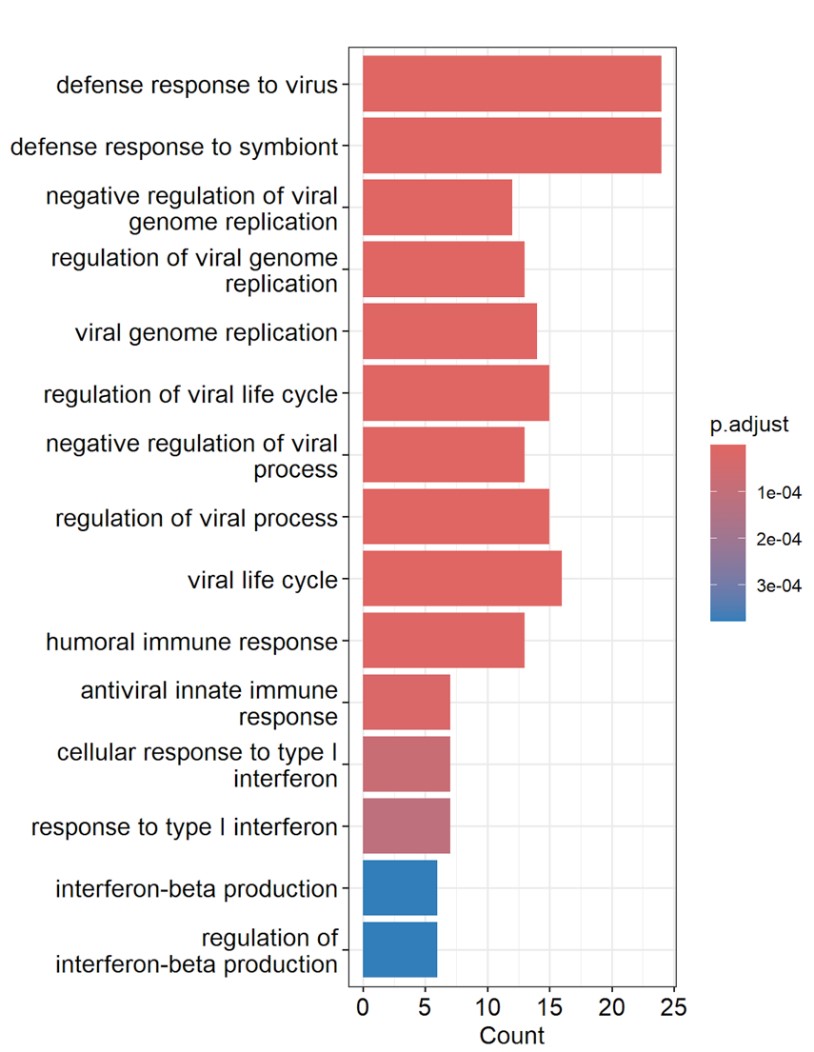Session Information
Date: Sunday, October 26, 2025
Title: (0506–0521) Sjögren’s Disease – Basic & Clinical Science Poster I: Etiology, Pathogenesis, Diagnosis
Session Type: Poster Session A
Session Time: 10:30AM-12:30PM
Background/Purpose: Oral and ocular dryness are hallmarks in patients with Sjögren’s disease (SjD). Given that activation of interferon (IFN) pathways has been shown to be involved in SjD pathogenesis, we aimed to explore whether demographic, clinicopathological, and laboratory features, as well as type I IFN-inducible gene expression, are associated with impaired salivary secretion in a cohort of patients presenting with sicca complaints. To exp
Methods: 623 consecutive patients with sicca symptoms that were evaluated in the Department of Physiology, Medical School of Athens, NKUA were included in this study after informed consent. Demographic, clinicopathological and laboratory data were thoroughly collected. Immune profile testing, chronic viral infections (HIV, HCV), chest X-ray and minor salivary gland (MSG) biopsy were also performed. Unstimulated whole salivary (UWS) flow rate was considered low with a threshold of ≤ 0.5 mL/5min. 110 MSG biopsies were subjected to real-time PCR to quantify IFN I and IFN II inducible genes (IFIGs). Moreover, IFIGs derived from the peripheral blood of these patients were evaluated. For ten patients with SjD, six of whom with normal and four with low UWS, besides next-generation sequencing (NGS), a pilot bulk RNA-sequencing study was performed. Total RNA was extracted from blood leukocytes, for which quality control was first performed. Statistical analysis was performed by SPSS 29.0. and bioinformatics analysis in R programming language.
Results: UWSF was inversely correlated to both type I IFIG transcripts (IFIT1: r=-0.446, p= 0.043, IFI44: r= -0.46, p=0.03, MX-1: r=-0.487, p=0.02) and IFN II (MIG: r= -0.592, p=0.006). Furthermore, this inverse correlation was detected against subjective oral dryness (r=-0.199, p=0.002), age at symptom onset (r=-0.146, p=0.046), Rose Bengal stain (r=-0.244, p=0.005), and Schirmer’s test (r=-0.339, p< 0.001). Additionally, UWSF was inversely correlated to the presence of anti-Ro/SSA (r=-0.246, p< 0.001) and anti-La/SSB (r=-0.199, p=0.003) serological reactivities, as well as ESR (r=-0.170, p=0.012), IgG (r=-0.278, p=0.003) IgA (r=-0.245, p=0.01) and C4 (r=-0.161, p=0.018). Finally, MSG biopsy parameters, such as Focus score (FS) (r=-0.370, p< 0.01, Tarpley (r=-0.381, p< 0.01) and fat score (r=-0.448, p=0.013) were also inversely correlated to UWSF. Following differential gene expression (DEG) analysis, the upregulated DEGs in patients with low UWS compared to normal UWS were subjected to gene ontology analysis (GO) (Fig.1). Interestingly, the patients with low UWS had upregulated GOs regarding innate immunity such as defense response to virus and symbiont. Additionally, an upregulation of processes, such as response to type I IFN and regulation of IFN production, was illustrated.
Conclusion: These data highlight a negative correlation of UWSF to components of the IFN pathway as well as demographic, laboratory, and clinicopathological features in a cohort of patients with sicca symptoms. Furthermore, SjD patients with low UWS are characterized by upregulated antiviral defense and interferon signaling pathways in their peripheral blood, highlighting the link between IFN pathway and low UWS.
 Figure 1-Gene Ontology (GO) analysis of upregulated genes in patients with low versus normal unstimulated salivary flow rates.
Figure 1-Gene Ontology (GO) analysis of upregulated genes in patients with low versus normal unstimulated salivary flow rates.
To cite this abstract in AMA style:
Marketos N, Skarlis C, Raftopoulou S, Gjyrezi A, Zumbo P, Betel D, Stergiou I, Voulgarelis M, Giannakakou P, Mavragani C. Inverse Correlation Between Type I Interferon Pathway Activation And Unstimulated Whole Salivary Flow In Sicca Patients [abstract]. Arthritis Rheumatol. 2025; 77 (suppl 9). https://acrabstracts.org/abstract/inverse-correlation-between-type-i-interferon-pathway-activation-and-unstimulated-whole-salivary-flow-in-sicca-patients/. Accessed .« Back to ACR Convergence 2025
ACR Meeting Abstracts - https://acrabstracts.org/abstract/inverse-correlation-between-type-i-interferon-pathway-activation-and-unstimulated-whole-salivary-flow-in-sicca-patients/
